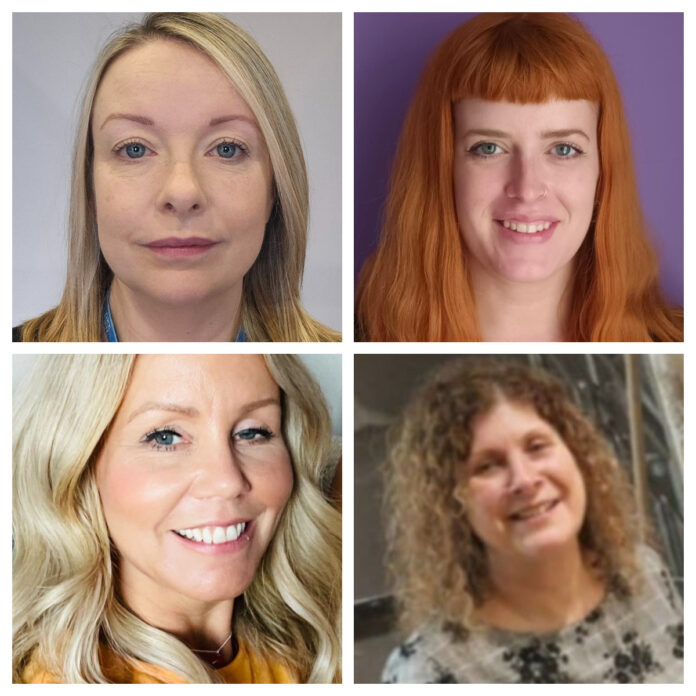An innovative Rochdale service has helped over 3,000 people with severe mental health issues in its first 18 months – including 53-year-old Syke resident Christine who was “going through hell.”
The Heywood, Middleton, and Rochdale living well service unites NHS mental health professionals and pharmacy colleagues from Pennine Care NHS Foundation Trust, local GPs and primary care colleagues, voluntary sector staff from Rochdale and District Mind and Turning Point, adult care professionals from Rochdale Borough Council, officers from Greater Manchester Police, talking therapy practitioners from The Big Life group, experts in homelessness, substance misuse, employment, benefits and many others.
As part of the largest transformation of community mental health services, this is the first time such a vast range of services have worked together as a true partnership. And people with lived experience of mental health issues have shaped every step of the service’s development.
The goal is to make services more joined-up, accessible, and consistent for adults with severe mental illness – ensuring they can quickly and easily receive the right support.
With their “no wrong door” approach, they’resupporting people who might not previously have received help because their issues were too complex for primary care but not complex enough for specialist mental health services.
Providing early support by the right professional, in the right place benefits people’s recovery and experience. It also reduces demand on GPs and referrals to specialist and hospital mental health services.
People aged 18 and above can easily be referred to the living well service via any professional, for example GPs, health and social care, education, police and the probation service.
Following their referral, a plan is developed about what services or professionals would best meet their needs.
People may be supported by more than one professional or service at the same time. They’ll work with the patient to explore what goals they want to achieve and what support they’ll need.
Christine’s story
Christine was referred to the living well service after a traumatic experience left her so anxious and depressed she couldn’t leave her bedroom.
Christine said: “I was too scared to do anything. My daughter brought my meals and looked after me. I felt so isolated I started having suicidal thoughts. I was going through hell.”
Feeling desperate, Christine found the courage to speak to her GP, who referred her to the Heywood, Middleton, and Rochdale living well service.
Pennine Care’s senior mental health practitioner Cassie Jones-Branagan and consultant psychiatrist Dr Hossam Marey reviewed Christine’s medication.
It was agreed that Christine would be supported by Alex Cussons, wellbeing co-ordinator and Joanne Murphy, peer support worker – both from Rochdale and District Mind and therapist Gail Ashton from NHS Heywood, Middleton and Rochdale Talking Therapies, provided by Big Life group and Pennine Care.
Christine added: “The ladies were really keen to help me. They came up to see me in my bedroom and we talked about what I wanted to achieve. My main goal was going to the gym. Because I felt so scared, we took little steps.
“First they challenged me to feel comfortable leaving my bedroom, then to go to the top of the stairs. I had lots of panic attacks, but eventually got there. Next I had to go downstairs, which took me around four months. I’d stopped looking after myself, so my next goal was to put makeup on.
“I then had to go for an appointment at Mind, with my daughter to support me. It took me two attempts to get there but I did it.”
To achieve her gym goal, Christine was supported by community health and wellbeing champion Farah Rehman and the exercise referral team from local charity Your Trust.
“Thanks to support from Farah and the team, I’ve now been to the gym twice. Farah comes with me and she’s amazing. Gail is supporting me with cognitive behaviour therapy, which is helping change the way I think. My next challenge is to get into voluntary work.
“I feel better, but anxious that something small will set me back. It’s reassuring to know I can phone Cassie and she’ll help.
“My advice to anyone struggling is that help is out there. When you feel so bad everything can seem hard. Even if you don’t think you’ll get somewhere, you will – just stick with it!”.
Cassie Jones-Branagan said: “Our new joined up approach meant we could combine our skills and expertise to quickly provide Christine with all the support she needed.
“Christine has shown real courage in overcoming her fears and we’re so proud of her progress.
“Our no wrong door approach means we can help more people like Christine achieve a happier and more hopeful future.”
Following discharge, people can easily get back in touch with the service if they need more support. Previously they’d have to go through a re-referral process.
People experiencing severe mental health issues should speak to their GP, or another professional who can refer them.
For more information people can visitwww.penninecare.nhs.uk/hmrlivingwell







